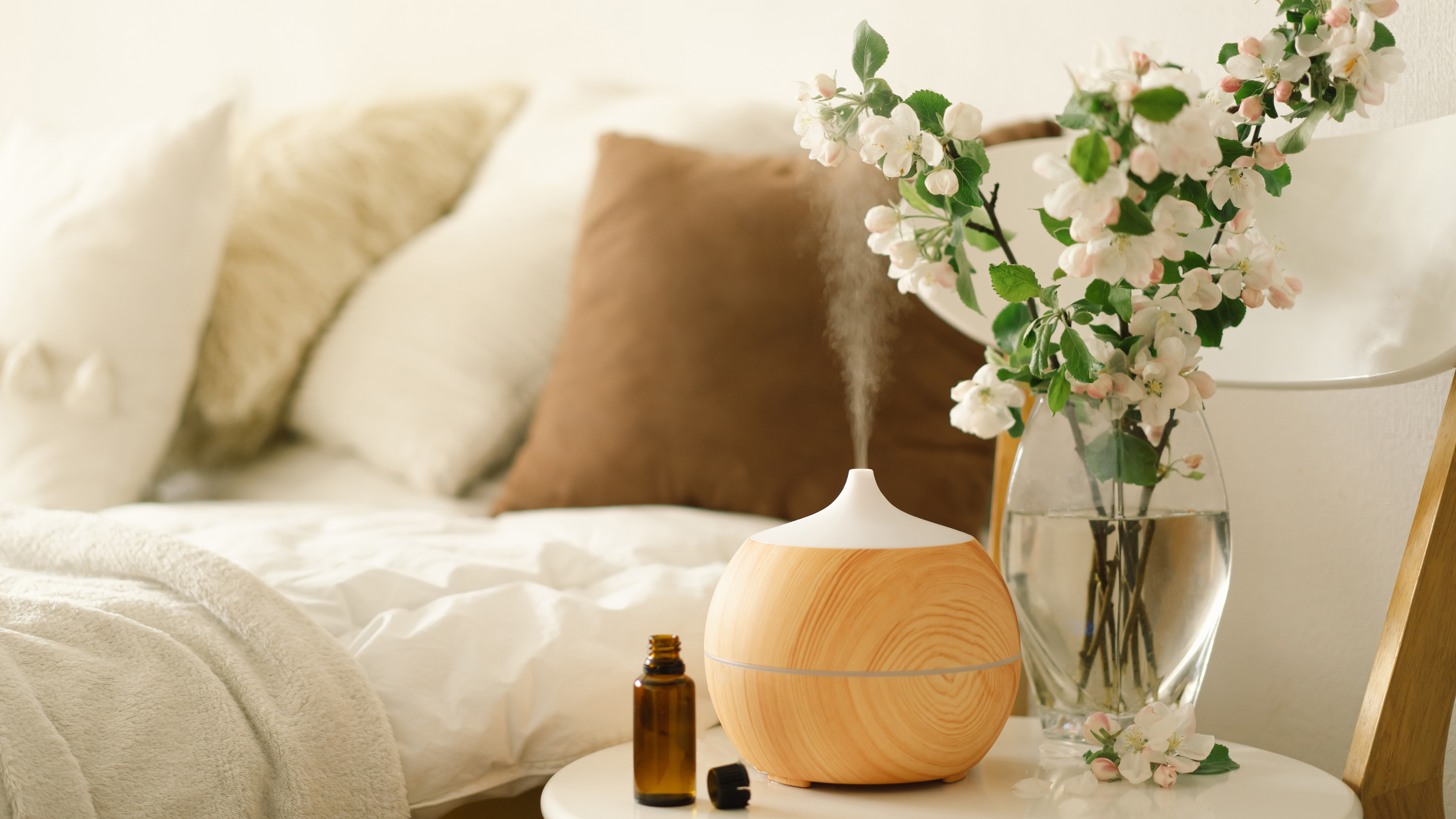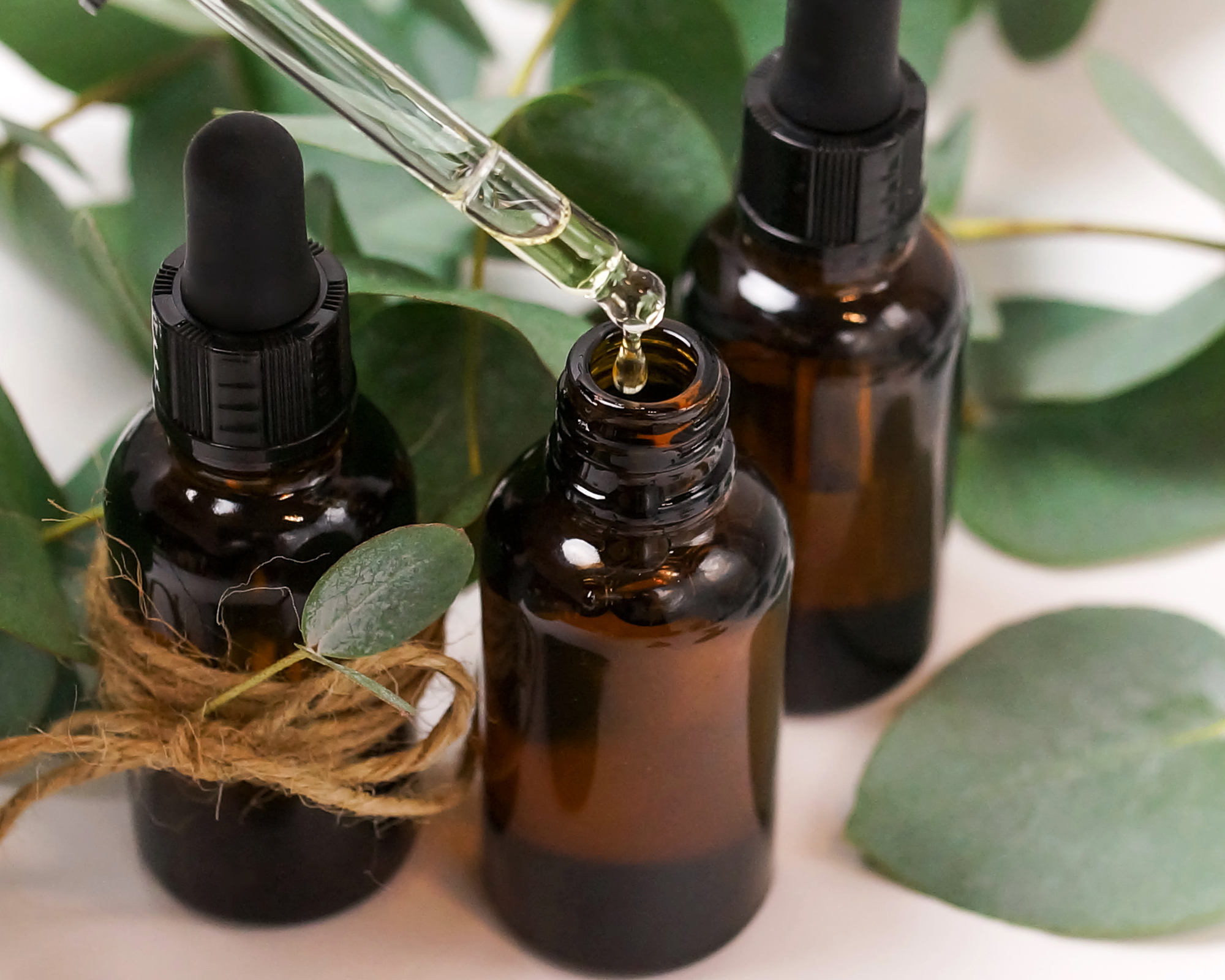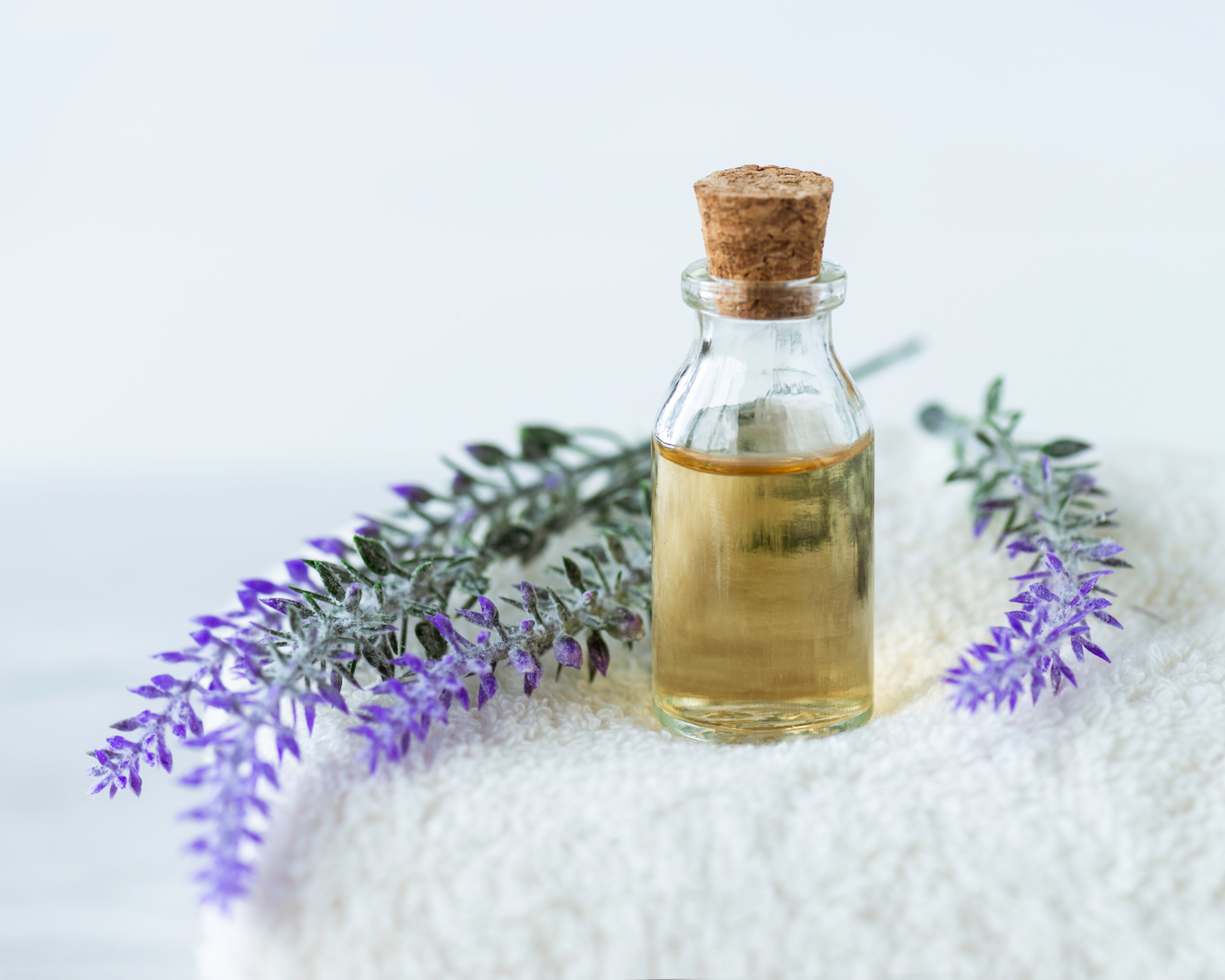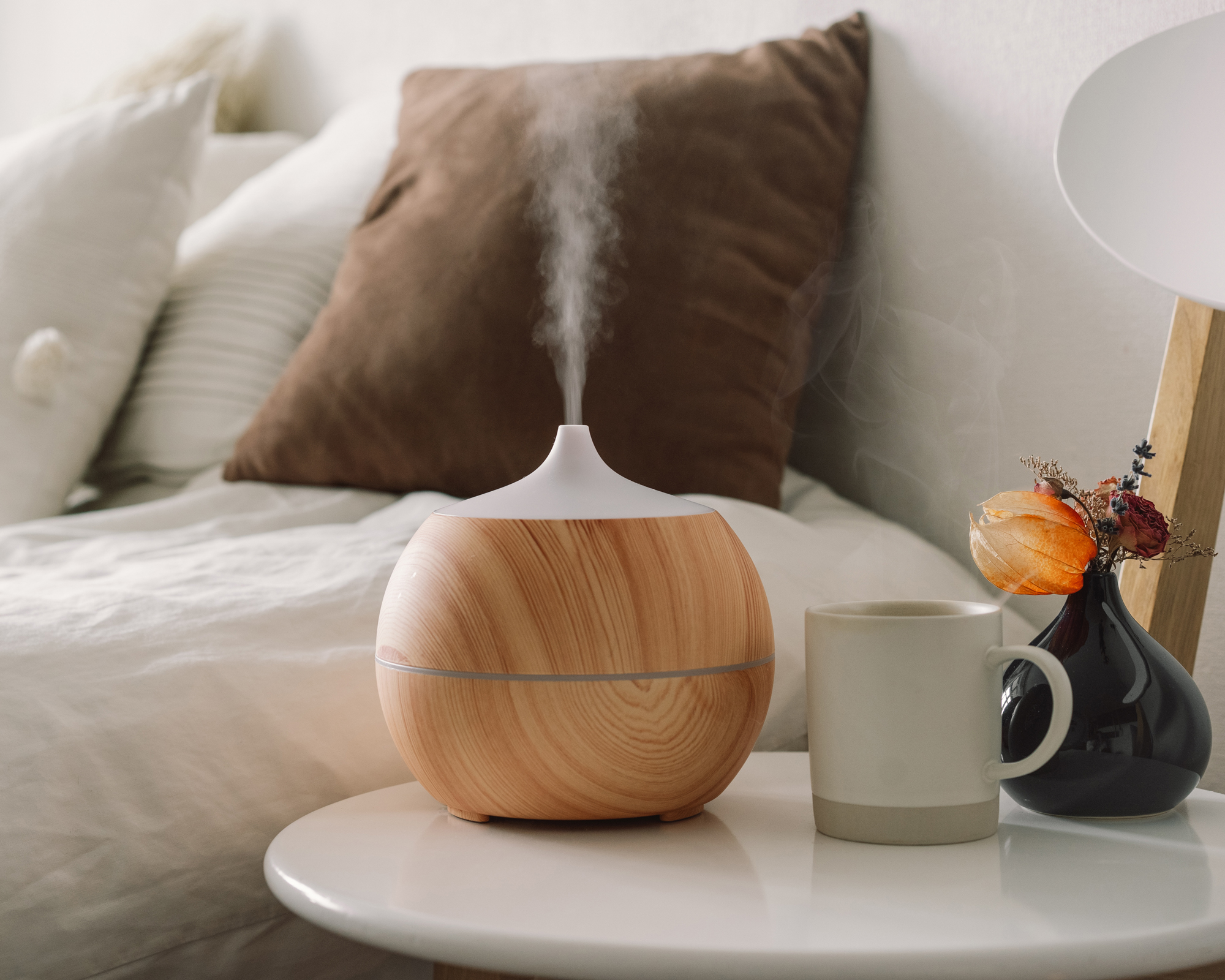Are essential oils safe? Expert advice on the most asked questions
Are essential oils safe? Here's what experts think

Get small space home decor ideas, celeb inspiration, DIY tips and more, straight to your inbox!
You are now subscribed
Your newsletter sign-up was successful
'Are essential oils safe?' is a question many people ask themselves. There's no denying that essential oils are experiencing a boom, partly as a backlash against chemical cosmetics and partly due to a resurgence of alternative medicines and aromatherapy.
Essential oils also smell amazing, which is their big draw for those who like home fragrance. When paired with an essential oil diffuser, they can promise relaxation, reduced stress levels, and even improved sleep, But are essential oils really safe, and what do you need to know before using them?
We've asked experts with medical backgrounds to give their honest advice on the safety of essential oils in everyday settings.
Are essential oils safe to inhale?
Broadly speaking, yes, but with exceptions. Dr. Enrizza P. Factor, a clinical dermatologist, and researcher with MyEczemaTeam told us that "inhaling essential oils that are diffused is safe for most people."
However, some people may react to the fumes and get an asthma attack. Breathing in essential oils can cause a severe lung infection known as pneumonitis in some people. In general, however, essential oils are safe when used externally (not ingested) in low concentrations.'
Ideally, you should use your diffuser in a well-ventilated area for no more than 15 minutes an hour. You should also be careful with some essential oils as they can be irritating to the respiratory tract, especially eucalyptus and peppermint, as these contain a chemical compound called phenol.
On the other hand, if you're suffering from a cold and sinus congestion, both peppermint oil and eucalyptus can be used to help unblock your sinuses and relieve symptoms. A study has found cineole, the chemical found in eucalyptus oil, to be effective at treating rhinosinusitis. The best way to use these oils is by inhaling a few drops diluted in a large bowl or pan of steaming hot water.
Get small space home decor ideas, celeb inspiration, DIY tips and more, straight to your inbox!
Can essential oils help you sleep?
Yes. Some essential oils have been found effective at assisting sleep and even treating mild sleep disturbances. Lavender, chamomile, bergamot, clary sage, and cedarwood essential oils have been found to be effective in reducing stress and improving sleep in several clinical studies (the Sleep Foundation provides an extensive list of studies that support these claims).
The best way to use these oils is either in your diffuser or in a pillow spray. The This Works Pillow Spray, for example, has been around for many years and many people find it effective.
You could even learn how to make a reed diffuser yourself and create your own essential blend.
Are essential oils safe for skin?
This is where it gets a little trickier. Depending on who you consult and what you read, you may find information that advocates both for and against essential oil use for skin health. Essential oils have been used traditionally in many cultures to treat a variety of skin problems, but modern dermatologists are not so keen, warning that essential oils can cause severe allergic reactions and sensitivity. Many will advise against all essential oil use, just to be on the safe side.
As a general rule, you shouldn't use essential oils or products containing them if you have sensitive skin or known allergies. And even if you've never had an allergic reaction before, it's always possible to develop allergies later in life, so always approach products containing essential oils with caution.

Some essential oils, particularly those in the citrus family, make your skin more sun-sensitive, so be extra-vigilant with wearing SPF if you are using skin products containing these oils (orange, lemon, and bergamot oils in particular).
Essential oils also must never be used undiluted on the skin – they should only be applied to the skin using a neutral carrier oil (sweet almond oil, for example). Dr Factor recommends using essential oils at 'concentrations no higher than five percent.' That means only a few drops per bottle of carrier oil. Some essential oils are extremely strong and can cause chemical burns on your skin if not appropriately diluted.
If you're not confident that you won't use too much, buy a product containing essential oils, buy a skincare product from a reputable natural brand instead.
If you experience redness, hot skin, or a rash – you're having an allergic reaction and should stop using the oil.
Are essential oils safe to ingest?
No. Dr Factor recommends that 'you never eat or drink essential oils.' Licensed cosmetologist, registered esthetician, and CEO of Editor's Pick Kathryn McDavid agrees, especially stressing that essential oils should never be given to children: 'Unless under the direct supervision of a medical specialist, children
should never eat essential oils '
Ingesting essential oils is sometimes promoted in alternative medicine practices to treat a variety of ailments, but it's important to note that no conclusive research exists to prove their effectiveness. Conversely, ingesting too much essential oil can lead to severe poisoning. Victoria Glass M.D., a practicing doctor with a focus on medical research at the Farr Institute, also points out that essential oil use can cause 'nausea and headache' and 'hormonal issues.'
Essential oils are not regulated by the FDA (or any other medical body anywhere, for that matter), so there's no way to even know if the specific oil you're using is chemically what it is supposed to be. Best steer clear.

How can I make sure the essential oils I'm buying are quality?
If you want a nice essential oil blend for your diffuser, you should try to get the best possible quality. This can be challenging due to the lack of regulation. McDavid warns consumers that 'essential oil items sold at big-box stores or chain drug stores are almost always fakes.
Many mass-market ''aromatherapy'' items that claim to include oils contain synthetic perfumes or isolated fragrant compounds like linalool and geraniol limonene, rather than natural essential oils. It might be difficult for even a seasoned lab worker to detect if an essential oil has been tampered with.'
Basically, if it's sold at your local dollar store for less than $5, it's probably not worth your money. Buying certified organic essential oils (available at Amazon) is a safer bet as this ensures that at least some of the production process was properly regulated.

Are essential oils safe for pets?
Absolutely not, with very few exceptions. Our pets, including cats and dogs, have different endocrine systems and liver functions than us, so they can't process essential oils in the same ways we do.
Many essential oils, including tea tree, eucalyptus, citrus, mint, wintergreen, pine, and ylang-ylang are highly toxic to cats and dogs, regardless of whether the oils are ingested, inhaled, or get on their fur or skin. Side effects include vomiting, diarrhea, seizures, and even coma and death in cases of severe poisoning. It is best to keep all oils and diffusers well out of areas your pets use.
A very limited number of oils, namely lavender, rose, and jasmine essential oils, can be used in a diffuser around your pets. Just to be on the safe side, when you're done with your aromatherapy session, open the window.
Anna is a professional writer with many years of experience. She has a passion for contemporary home decor and gardening. She covers a range of topics, from practical advice to interior and garden design.